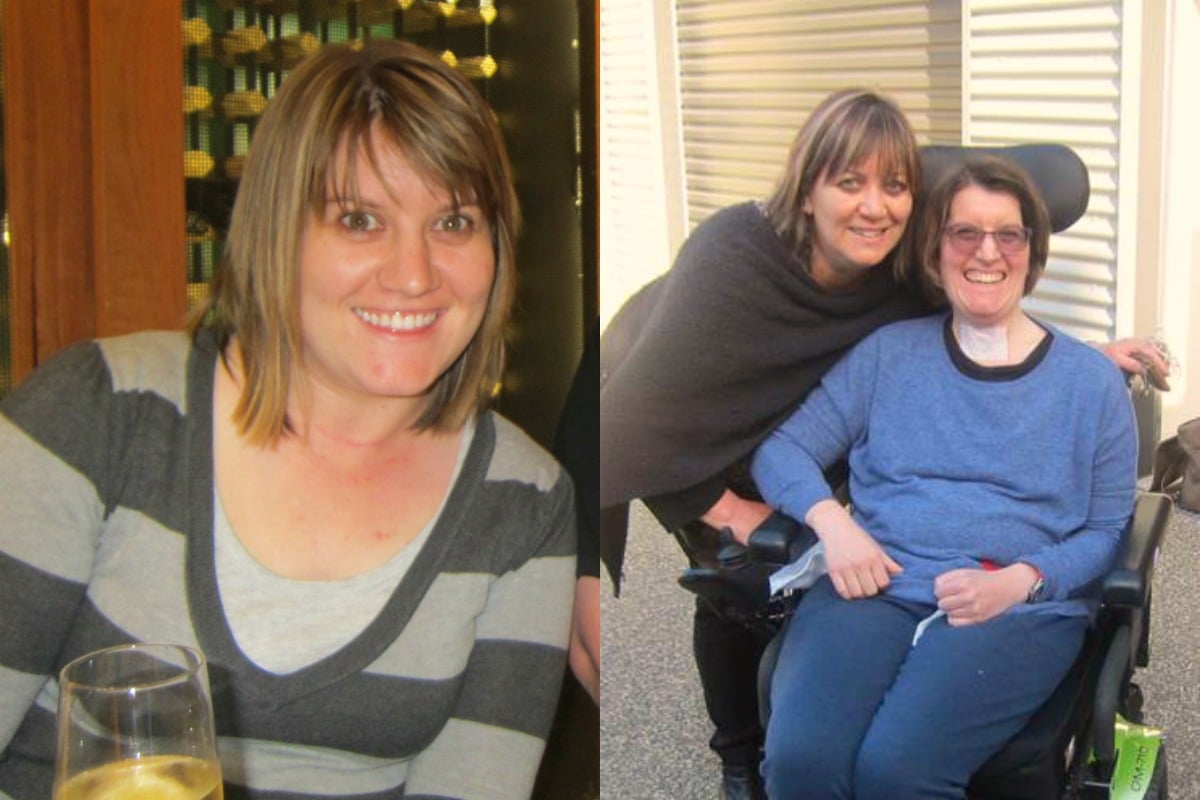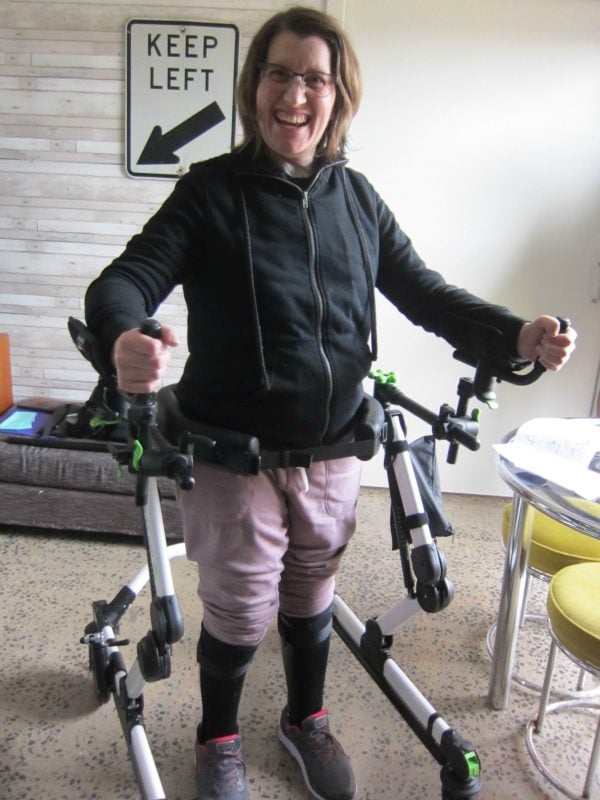
Five years ago, my daughter Kirby – then aged 28 – was diagnosed with a brain tumour. The next morning, she found herself in surgery.
Kirby went in to have an MRI for migraines and never came back to the house she called home.
Usually, if someone is diagnosed with a tumour, there is time to prepare for what comes next. None of us had any idea how drastically our lives were about to change.
In 2014, Kirby underwent a 10-hour operation to remove the tumour and, 20 minutes later, suffered a stroke to one side of her brain. Three weeks later, she experienced a second stroke to the other side of her brain.
Watch: The warning signs to look out for when someone is experiencing a stroke. Post continues after video.
At just 28 years old, my Kirby was suddenly unable to talk or move from the head down. We didn’t know whether she was going to make it.
I remember the months vividly when Kirby went first into the intensive care unit, then in the ward – it was one of the hottest summers on record and we spent it all in the hospital room.
As a mother, it’s hard to describe the feeling of seeing your daughter in such a helpless state. It’s so intense, and the pain is physical, as well as emotional – almost like a sharp piece of ice going through your heart.


